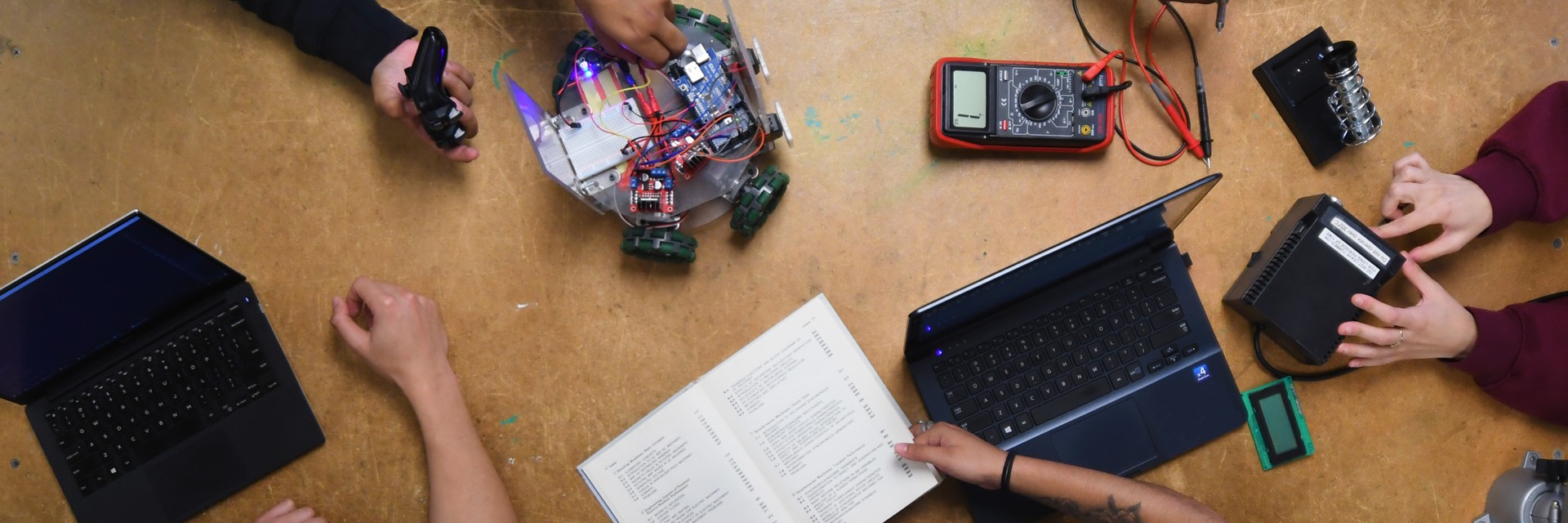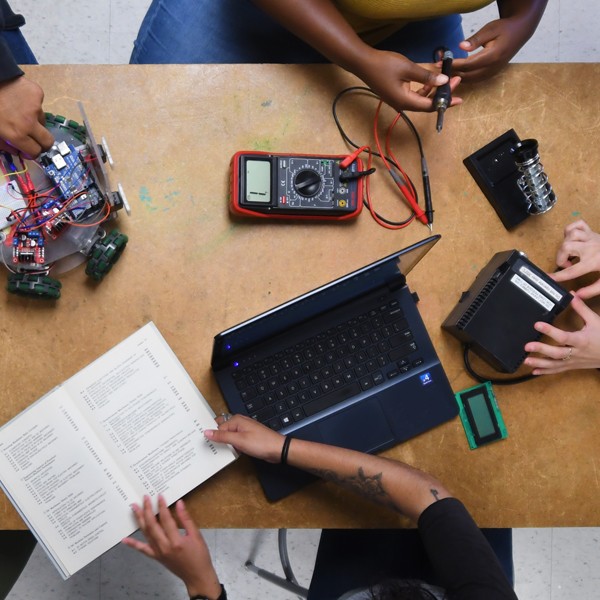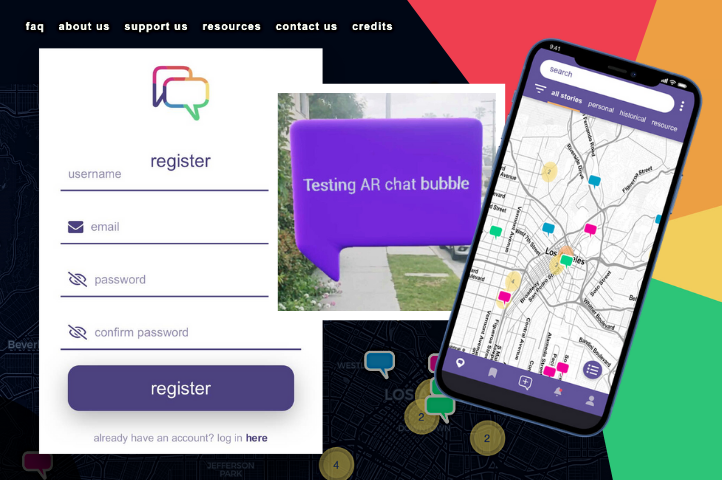Photo: ECST Capstone Senior Design project, The arqive, Screenshots
The arqive is an interactive, global repository of user-generated LGBTQ stories, historical and current events, and specific resources provided by local community organizations. Content is user-generated, pinned on a digital map with an engaging user interface, and free to all. Founded in 2014, the project is the brainchild of Dr. Cynthia Wang, Associate Professor of Communication Studies at Cal State LA originally funded by a grant from USC, where she earned her Ph.D. Of her inspiration for the project, Dr. Wang says, “I was taking a class on LGBT histories at USC and around the same time, my parents moved from the LA area to Hong Kong. I went to visit them—it was my first time in Hong Kong—and I wanted to go to a gay bar. I went online and found one on a Yahoo list that was horribly outdated, probably created in the 90s. I go to the bar, and of course, I can’t find it.
“This experience, combined with the history class I was taking, caused something to click,” says Dr. Wang. “I started to think about the erasure of queer spaces in urban centers and other areas, how very invisible queer people can be, and how isolating that can be.”
I started to think about the erasure of queer spaces in urban centers and other areas, how very invisible queer people can be, and how isolating that can be.
The mission of The arqive is to help remedy this isolation by increasing the visibility of LGBTQ individuals and experiences around the world while at the same time providing the option of anonymity for users through advanced privacy and security measures. This is necessary because there are still places in the world where being queer is a crime, punishable by the death penalty. So, The arqive must be safe for people to use even in geographies that are hostile to LGBTQ individuals.
After working on the project for five years, Dr. Wang felt that momentum had stalled. So, in 2019 she invited Mr. Zachary Vernon, Assistant Professor of Art at Cal State LA, to be a co-founder and creative director of The arqive. Mr. Vernon joined Cal State LA in 2018 with a research background in storytelling through visual narrative and a focus on the queer community. Says Mr. Vernon, “In the wake of the mass shooting at Pulse [a gay nightclub in Orlando, Florida, in 2016], I collected stories of queer individuals and their experiences with aggression, prejudice, and bigotry and created a comic book. I wanted to engage people in the struggles and pain points of the queer community in a way that was not glitzed up or glammed up by Hollywood—to show that real people are affected by prejudice.”
I wanted to engage people in the struggles and pain points of the queer community in a way that was not glitzed up or glammed up by Hollywood—to show that real people are affected by prejudice.
Adds Mr. Vernon, “Cynthia was looking for someone to help create broader engagement in The arqive and because of my background and interests, I was a natural fit.”
Together, Dr. Wang and Mr. Vernon initiated a full redesign and rebranding of the repository and began recruiting faculty and students from other academic departments at Cal State LA. Today, The arqive is a collaboration of Cal State LA faculty and students across three departments: Computer Science, Art, and Communication Studies.
The arqive is a collaboration of Cal State LA faculty and students across three departments: Computer Science, Art, and Communication Studies.
Dr. Wang continues to focus on fundraising, content, and collaborations with groups inside and outside Cal State LA. She and a colleague, Dr. Kate Kurtin, also an Associate Professor of Communications Studies, have overseen the public relations and social media contributions of 12 Communication Studies undergraduates and 1 graduate student. Mr. Vernon focuses on branding, design, look and feel, and user interface and has coordinated the work of 3 Graphic Design and Visual Communication undergraduates and 1 graduate student. John Hurley, a Lecturer in the Computer Science Department at Cal State LA has so far supervised the work of 25 Computer Science undergraduates, with more to come.
Says Hurley, “From my perspective, The arqive is a Capstone senior design project in Computer Science. Capstone projects give students a chance to develop skills and tools they will need as professionals. We’re in our third year with the Arqive. We had 5 students in the first year, 10 in the second year, and 10 in the third. In the first year, we rewrote the website, in the second year, we created a mobile app, and in the current year we’ve been adding features to the website and the mobile app.”
According to the collaboration leaders, The arqive provides a unique opportunity for students to work across disciplines and job descriptions and learn how to delegate, collaborate, and communicate with colleagues outside of their fields of expertise. Additionally, they are compelled to consider the implications of queer histories, which represent a diverse intersection of society, and address contemporary issues around identity, security, and privacy online, due to the dangers that queer people face online and in the real world.
The arqive provides a unique opportunity for students to consider the implications of queer histories, which represent a diverse intersection of society, and address contemporary issues around identity, security, and privacy online, due to the dangers that queer people face online and in the real world.
The last few years have been focused on building out the infrastructure of The arqive and the collaborative nature of the project has reinvigorated it. The work of The arqive has been presented at national and international academic conferences, including the Inter-Asia Cultural Studies Society Conference in Singapore in 2013 (before the project was officially launched), the International Conference on Business, Information, and Cultural Creative industries (ICBIC) in Taiwan in 2014, the Console-ing Passions Conference in 2017 in North Carolina, the National Communication Association Conference in Salt Lake City in 2018, and the Design as Common Good conference in 2021.
Additionally, The arqive was featured in the art publication, Hyperallergic, in 2019 and in a chapter of the book Interactive Storytelling for the Screen, edited by Sylke Rene Meyer and published in 2021. It has also won several awards for its branding and website redesign, including student recognition for the branding in Graphics and Graphic Design USA in 2020, recognition from the Summit International Design Awards in 2020, and an honorable mention from the International Design Awards in 2022. And so far, 25 Computer Science students have benefitted from being able to work on the project as part of their senior-year Capstone projects.
The infrastructure work will never end, but the project leaders are now turning their attention to content. Says Dr. Wang, “We’re exploring ways to make it more engaging and easier for people to add personal and historical stories—things like gamification and augmented reality that we can build into the site with help from ECST’s Computer Science students.”
“We’re also reaching out to archives, faculty in academia, and scholars in this field and talking to them about implementation into their research and classes to generate content that is useful to queer scholars as well as the public,” says Mr. Vernon. “We couldn’t have done this before we had a stable design and infrastructure. Now, we can really promote this and increase engagement.”
As for looking out over the next 3 to 5 years, Mr. Vernon says, “I would like The arqive to be a staple of queer research at least in America, with academics using us in their classes and research. I also want to see support for languages so people can add and access content in their own languages.”
“Technically for the future, as the amount of content increases and we have more users, we’re going to need to scale up and perhaps distribute content across multiple servers instead of just one,” says Hurley. “Also, when we get to the point of having lots of content, we’re going to need automated content moderation to determine what is acceptable and what is not. This is a huge challenge, but an interesting one for our students. And privacy and security will always be issues we’ll need to address technically.”
For Dr. Wang, top of mind will be ensuring that the project is sustainable. Neither she nor Mr. Vernon want to monetize the site. Says Mr. Vernon, “We don’t want to make a profit off the lives and stories of queer people.”
Says Dr. Wang, “Except for the original USC grant, we have no outside funding. ECST has been incredibly generous over the last 3 years sponsoring the teams of Computer Science students who work on the project. Institutional support is the only way a project like this is sustainable. We’d love to keep this as a Cal State LA project.”


